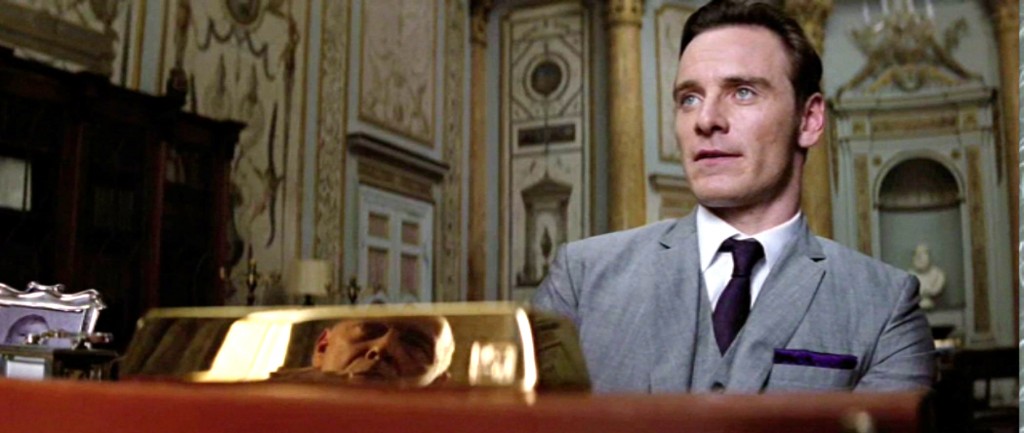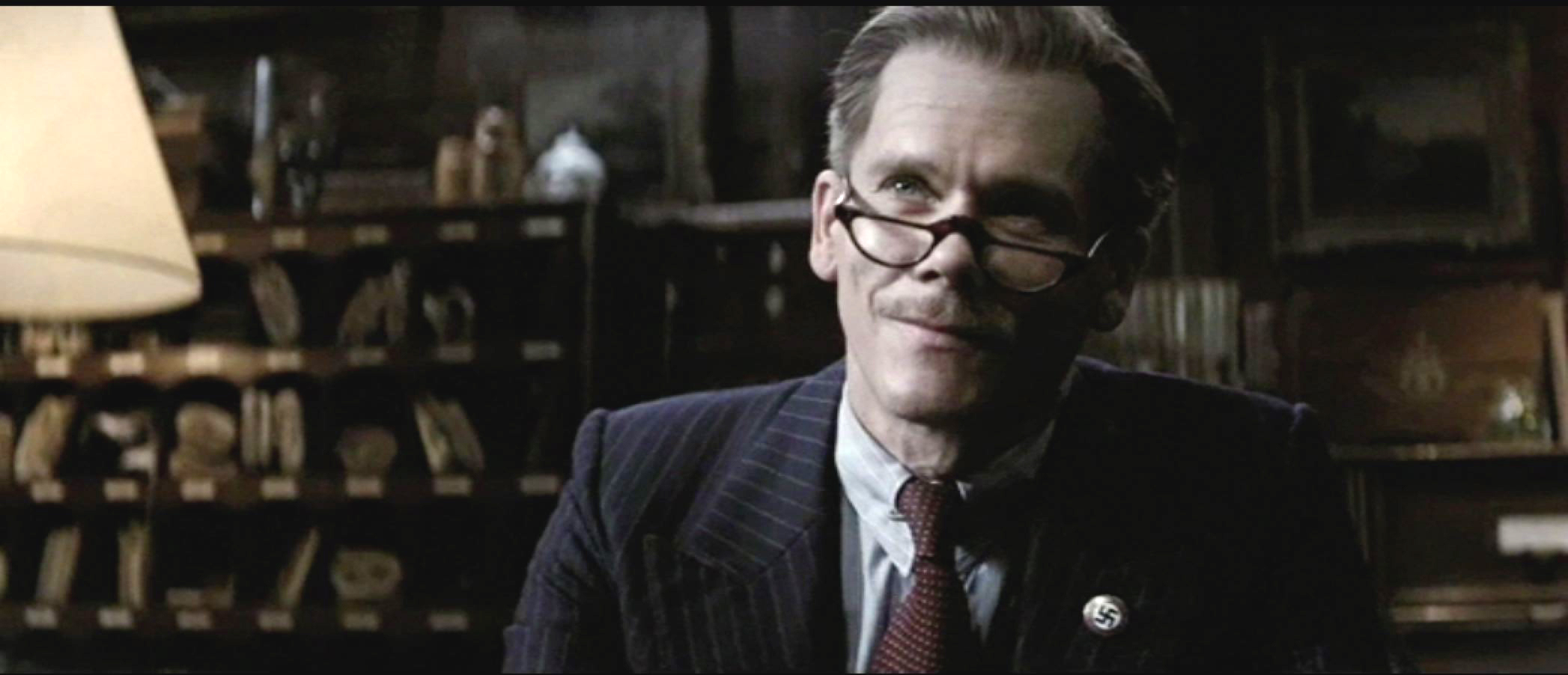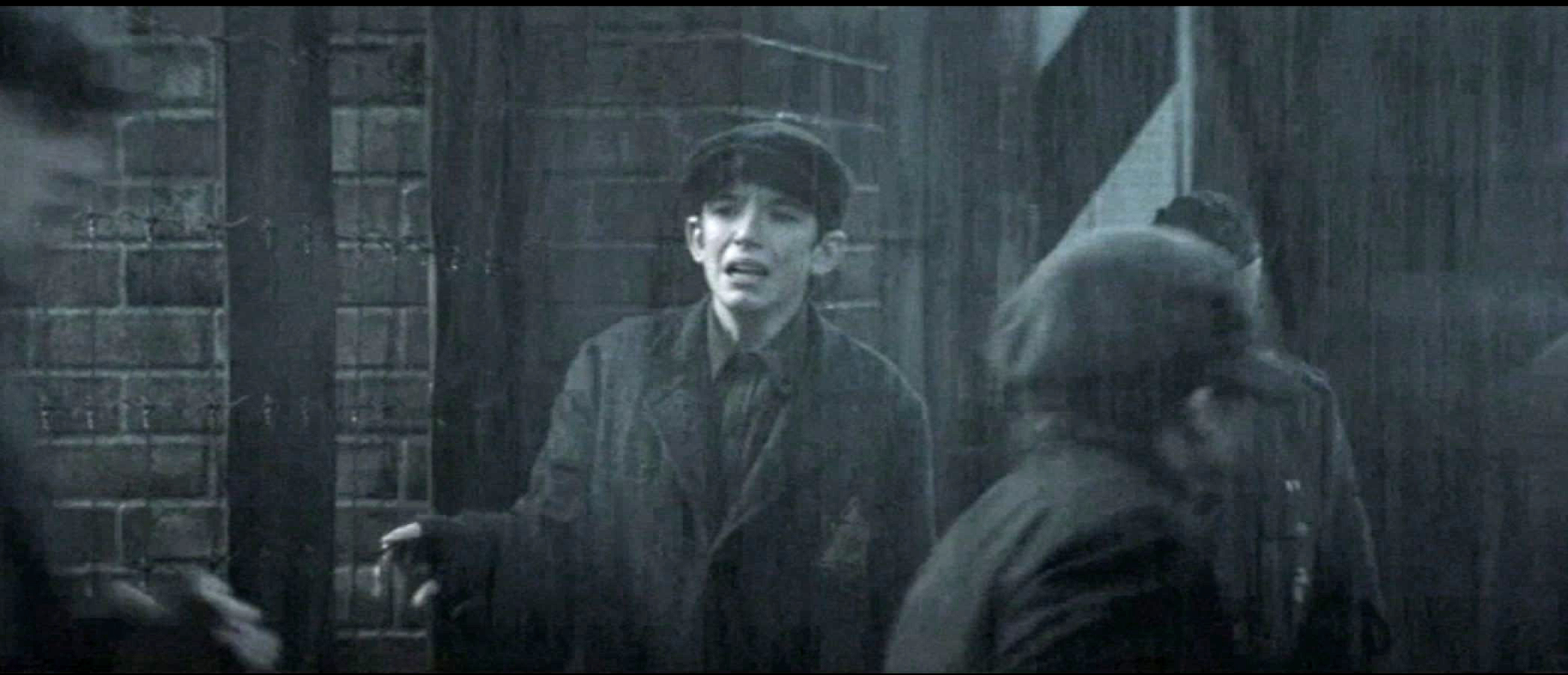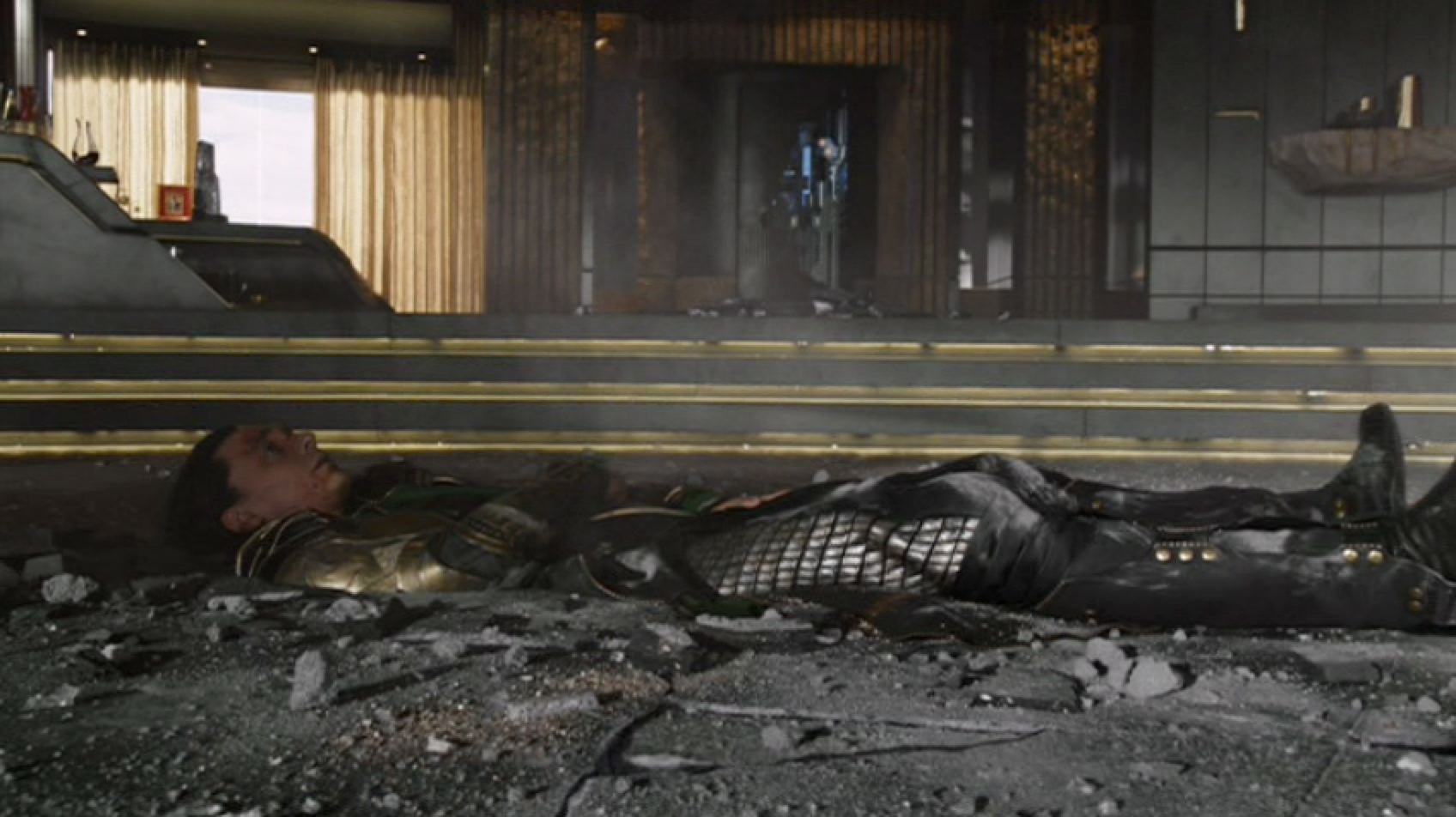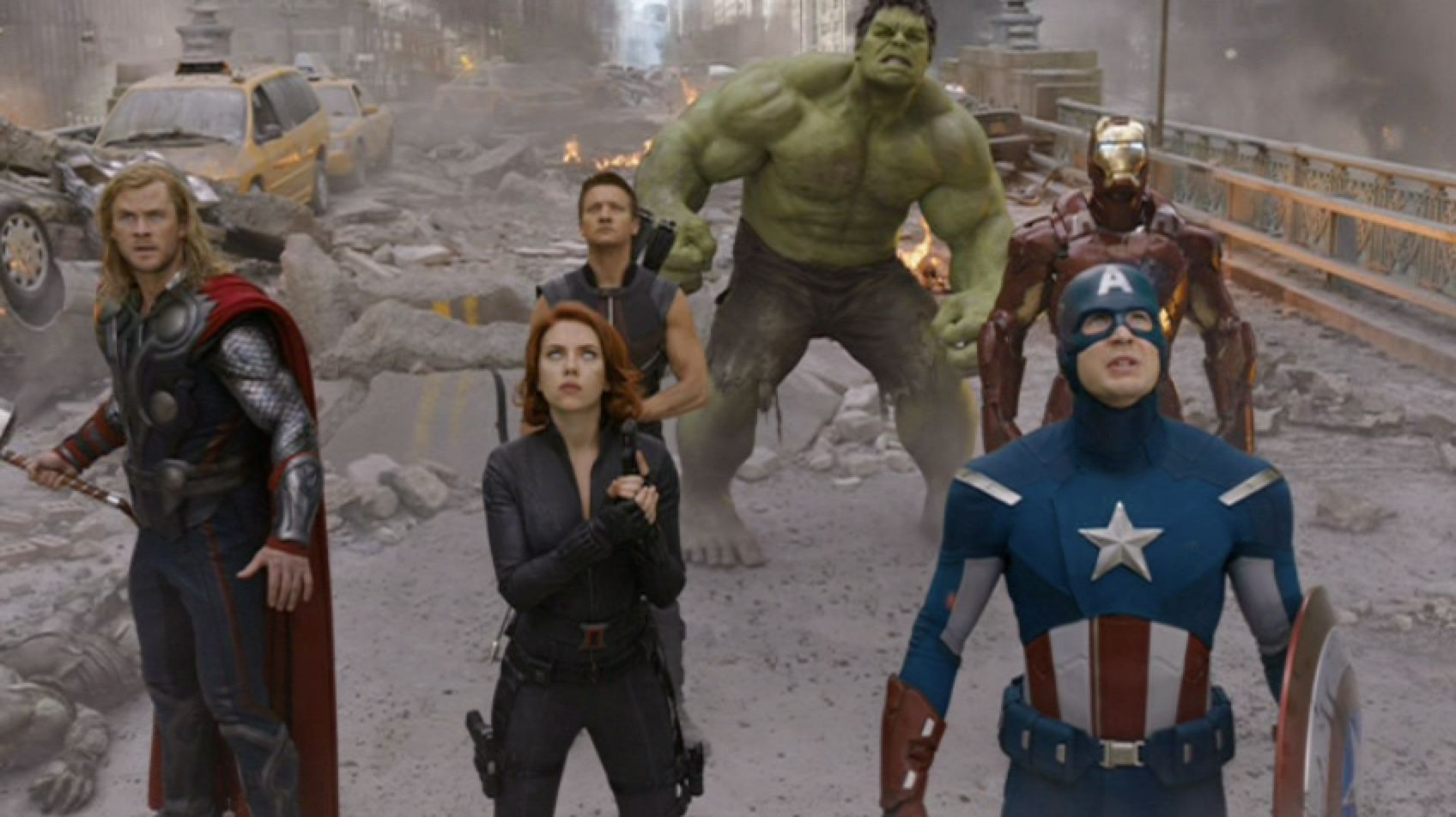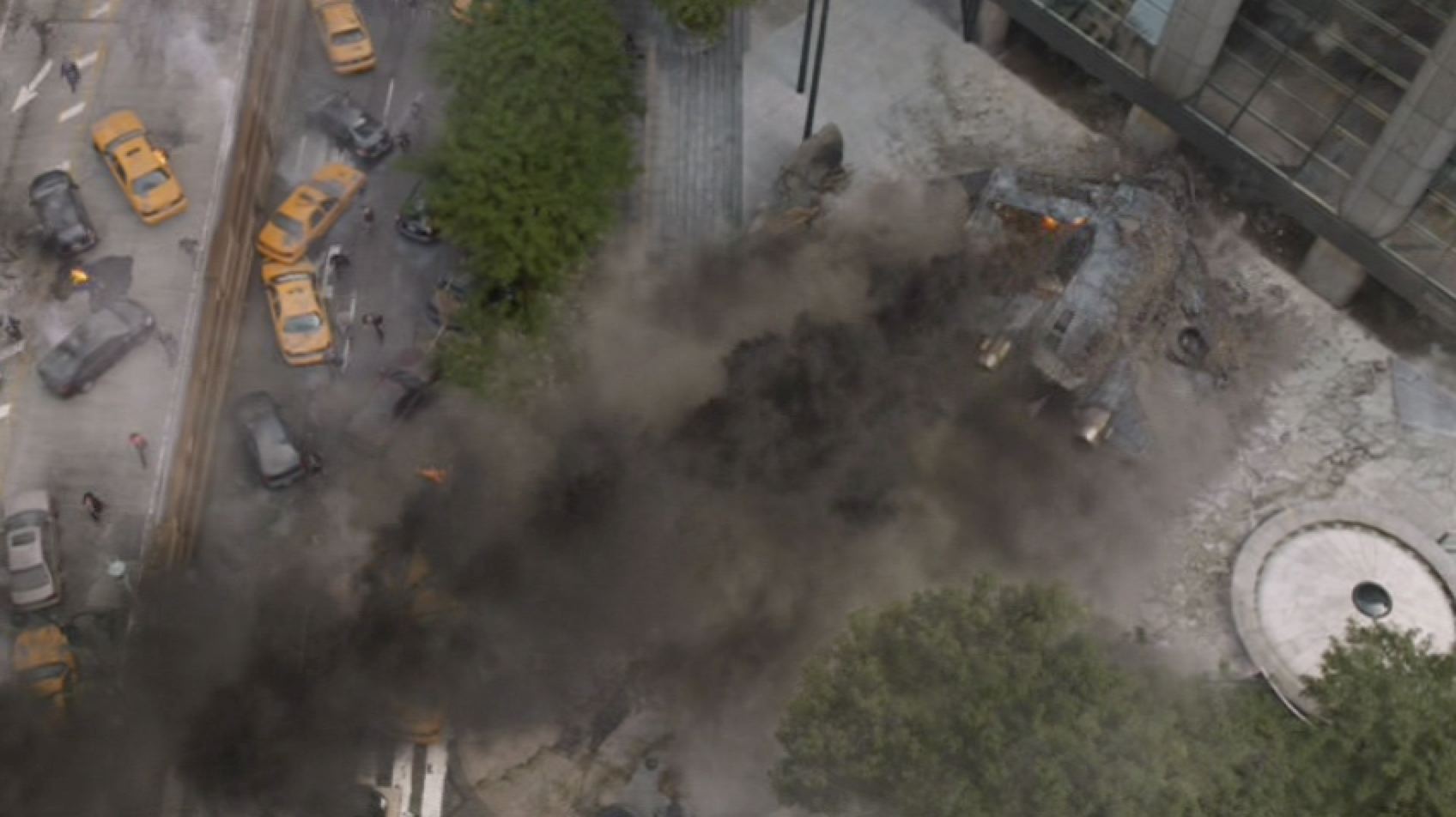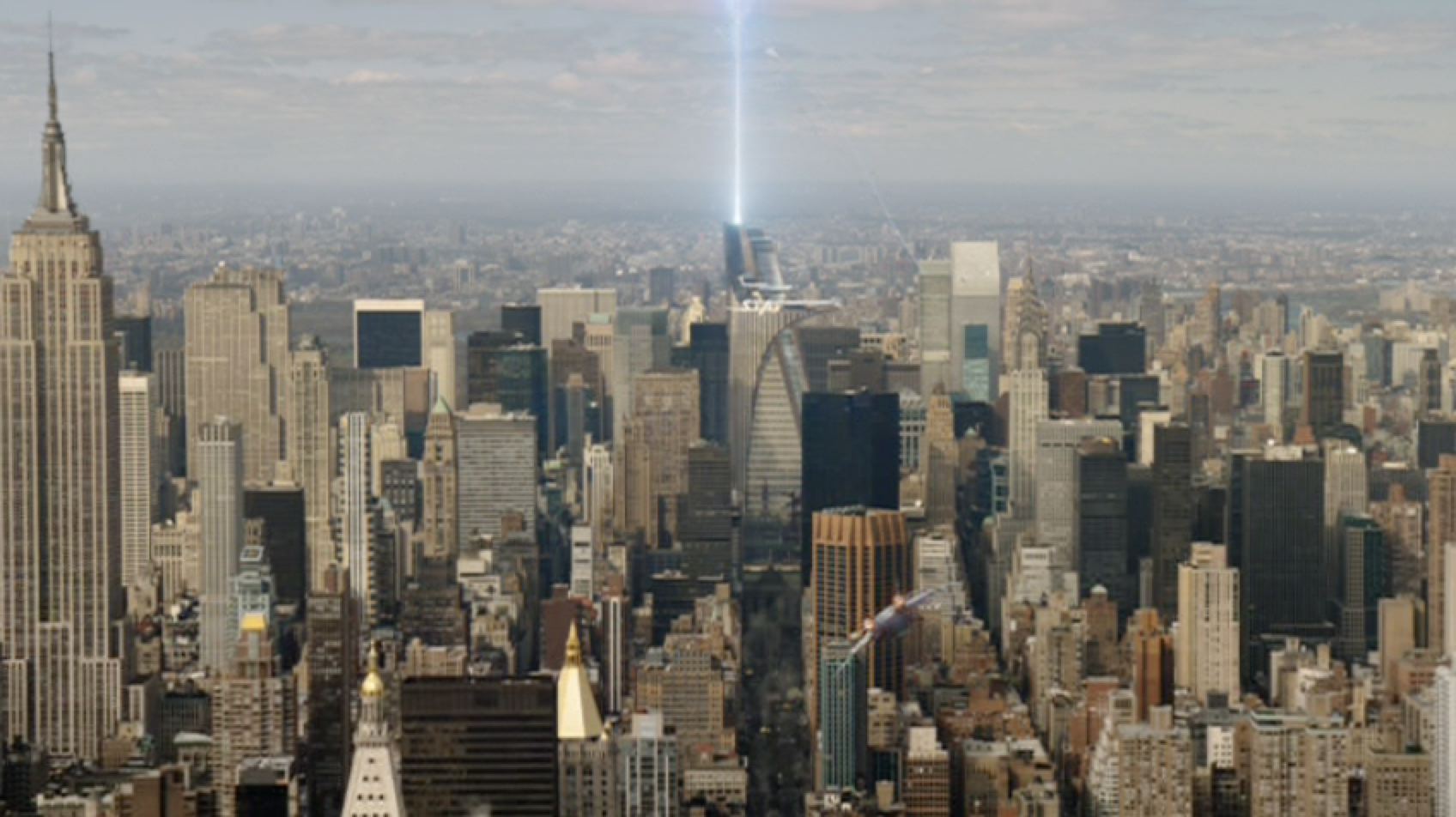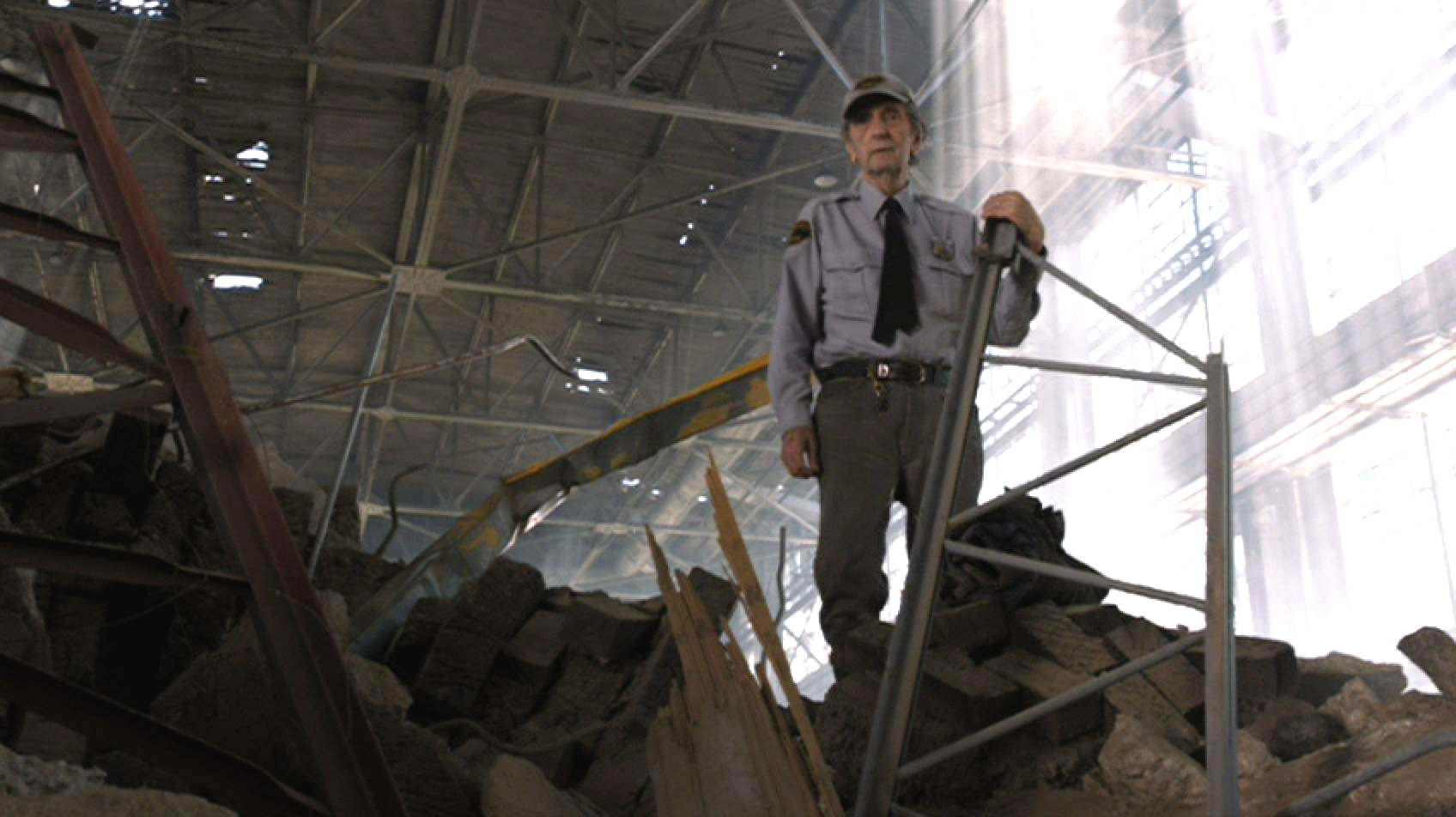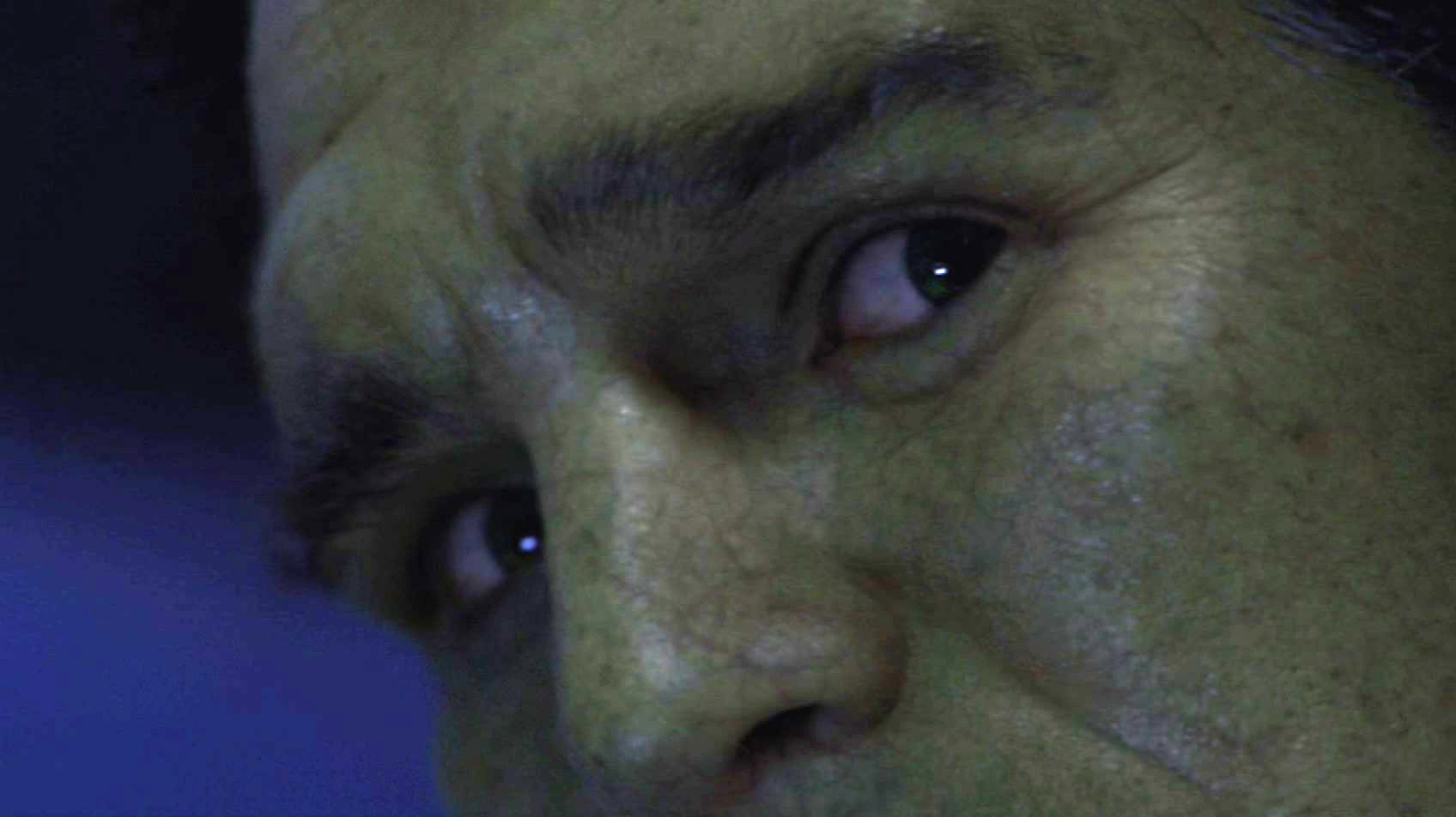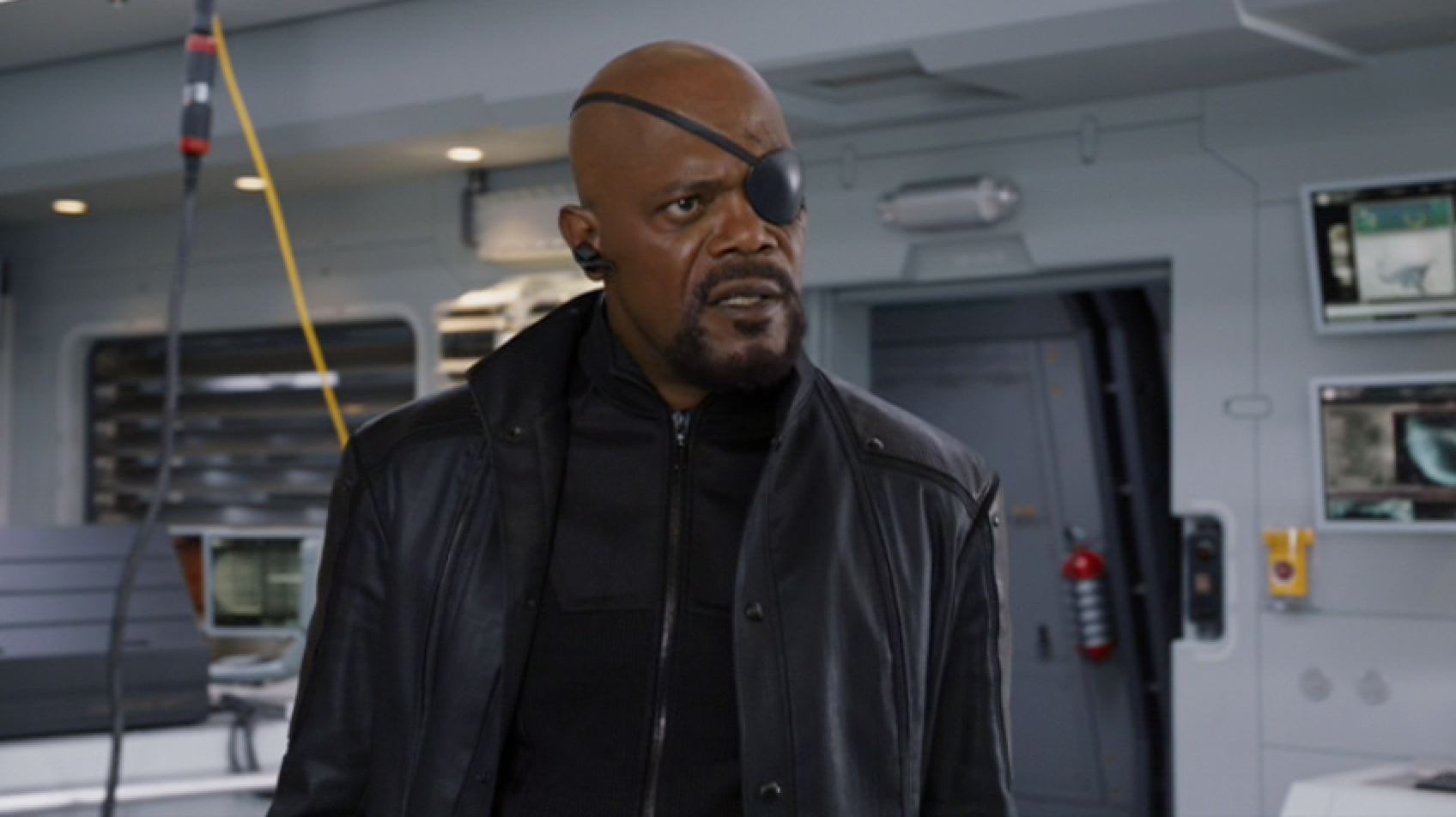X-Men: First Class part 3
The grown-up Erik Lehnsherr has traveled to Switzerland, like Jason Bourne, to find something. Bourne was looking for himself, but Erik is looking for Dr. Schmidt, the Nazi doctor who wasn’t really a Nazi doctor, who mentored him and developed his metal-manipulation powers during WWII.
Erik has gotten into the bank by pretending to be a client with a bar of Nazi gold. The screenplay doesn’t indicate where he got this bar of gold, but he does mention that “it’s all that’s left of my people.” Did Erik, under orders from Schmidt, extract this gold from the teeth of Jews in Schmidt’s prison camp, remove jewelry hidden on their persons? He doesn’t say, but we shortly see him do both those things to the Swiss banker who resists giving up Schmidt’s current location. Erik says he’d like to kill the banker, since the banker apparently has plenty of ex-Nazi clients, but he stops at merely removing one of his fillings. We will see later that Erik has no trouble killing Nazis, why does he demur at the opportunity to kill the banker? Perhaps he’s worried the murder of a banker would draw undue attention to him. In any case, the banker gives Erik Schmidt’s current location (Argentina, the ex-Nazi’s favorite hiding place).
X-Men: First Class part 2
We’ve met our rich-boy, poor-boy leads, and our story will turn out to be a romance between them. Because X-Men: First Class is a love story, it is allowed two protagonists. Generally speaking, a love story is weighted in the favor of one participant or the other, but First Class‘s seems genuinely evenly-balanced. So, if we have our two protagonists, the question immediately rises: what do the protagonists want? Erik’s desire is clear, and stems from privation: he wants his mother back. Xavier’s desire, on the other hand, stems from comfort and plenty: he wants all those who are unusual to feel safe and welcome. (It’s an interesting question how safe Xavier feels in his estate, if his mother is cold and distant.)
But before we get to the love story we need to meet our primary antagonist, Dr. Klaus Schmidt. Dr. Schmidt, before he even sits down to speak to Erik, tells us that he is “not a Nazi.” He listens to Edith Piaf, pooh-poohs the Nazi goals of blond hair and blue eyes and offers Erik chocolate. He’s playing “good cop,” and in fact is positioning himself as Erik’s new father in this wartime drama. It takes a special kind of man to pretend to be a Nazi to the extent Schmidt does, and we will learn more about that later.
X-Men: First Class part 1
X-Men: First Class does something I haven’t seen a superhero movie do before. It’s not just a period piece, that’s unusual enough, but it also places its fantastic characters, Gump-like, in the middle of historical fact. Captain America: The First Avenger, released concurrently, went back in time to place its difficult-to-like protagonist in his proper context, but then wove a fantastical story around him involving ancient Norse artifacts and a guy with no face. First Class not only places its characters in history, it puts them at the center of the darkest, most traumatic events of their time.
That kind of treatment skirts the boundaries of taste, turning, for instance, the Holocaust into comic-book fodder: First Class almost runs into Inglourious Basterds in its treatment of history. No one goes to the movies for a history lesson, but movies have always taught us, from their inception, through their dream-logic, who we are as a people and as a culture. It’s not the job of cinema to tell us how things are but how things feel. You can say that First Class tastelessly warps WWII, but Triumph of the Will did that before anyone even knew what WWII was. The Bryan Singer X-Men movies cloaked their tales of discrimination in colorful metaphor, but First Class demands to be considered “important,” and, to an astonishing degree, it succeeds.
The Avengers part 17
The battle sequence that concludes The Avengers is broken into three acts. The first act, roughly, unleashes the horde of Chitauri on Manhattan. The second act simultaneously ups the stakes and lets the Avengers find their footing to fight them. At the end of the second act, Loki, our primary antagonist, has monologued one too many times and has been subsequently smashed by the Hulk. No fancy hologram-Lokis this time, pure, literal brute force is enough to put Loki away for good. “Puny god,” snarls the Hulk, reminding us, with good humor, that the US is, theoretically anyway, a democracy, not a theocracy. But there are still bigger, albeit less resonant, fish to fry.
The Avengers part 16
Now that the Avengers have “cleared the red from their ledgers,” the real battle for New York, and the world, begins. Capt America, the living anachronism, is suddenly made commander. Why is unclear: he’s shown no flair for either strategy or tactics up to this point, and he’s eternally baffled by technology. He is, however, the group’s resident idealist, and Coulson’s favorite, which gives him the moral edge. Nick Fury, it’s worth mentioning, is absent from the battle. He is, I hesitate to say, the “real power” at this point, governmental power the way we mortals understand it: sneaky, underhanded and secretive, no matter how high his ideals.
The Avengers part 15
The battle sequence that caps The Avengers is ferociously complicated and it bears study for its ability to balance plot, theme, character and story.
It begins with Tony Stark confronting Loki as a mirror. If all the Avengers want to “wipe the red from their ledger,” Tony’s red is his ego. He succeeds in his first blow, insofar as he strikes it for Agent Coulson instead of for himself (although he stops short of destroying his own penthouse apartment for the sake of toppling the Tesseract’s portal-generator).
The Avengers part 14
The gloves are off, the war is on. Stark Tower is ground zero. For the first time in The Avengers’s narrative, there are civilians involved. Civilians had to pay attention in Stuttgart, but now they are collateral damage.
Why New York, again? Hasn’t New York suffered enough cinematic attacks since 9/11? From the Green Goblin’s assault on the Roosevelt Island tram to Cloverfield‘s giant angry whatsit, to Bane’s perversion of the Occupy movement, why must New York keep suffering? Part of the answer, of course, is that New York must suffer fantastic re-creations of 9/11 in order for us to understand and heal from that event as a culture. Another part of the answer is that New York is simply Marvel’s home and always has been — there are fewer cinematic real-estate shifts more jarring than the one that removed The Punisher from the gritty streets of New York and moved him to — what the ever-loving fuck — Tampa? But finally, the answer to the question “Why New York?” is that it is America’s City, the melting pot, the place where America, like it or not, was born, and is continually born, the place where all the world comes to be American. Millions of people, all from somewhere else, all living atop one another, all clashing against each other, all chasing the dream, all hating one another, all knowing that that very clashing makes the city stronger. Just like, you know, not to put too fine a point on it, The Avengers.
The Avengers part 13
Toward the beginning of Act III of The Avengers, a security guy gives clothes to Bruce Banner, who has crashed through the roof of a factory or warehouse or something. The security guy is played by Harry Dean Stanton, who, the veteran viewer knows, has seen some weird shit in his day. He asks Bruce if he’s an alien, specifically referencing Alien, where Stanton got his head gored by the eponymous xenomorph.
The Avengers part 12
Let’s talk for a moment about how The Avengers balances its “superhero” moments.
The Avengers part 11
At The Avengers‘s midpoint, it suddenly becomes Watchmen. That is, it becomes a superhero narrative about the nature of a superhero narrative. It’s been many things up to this point, but now it folds in on itself and comments on itself. Suddenly, Tony Stark, Bruce Banner and Steve Rogers all discover that Nick Fury wants the Tesseract not to light the world but to build weapons of mass destruction. Fury, in his defense, says that, until Thor came along, SHIELD didn’t need weapons powered by the Tesseract. His argument is that we need super-weapons to fight against superpowers. Does this eliminate metaphor from The Avengers‘s screenplay? That is, can a screenplay about superheroes keep going if one draws attention to the fact that the superheroes are, in fact, superheroes?
